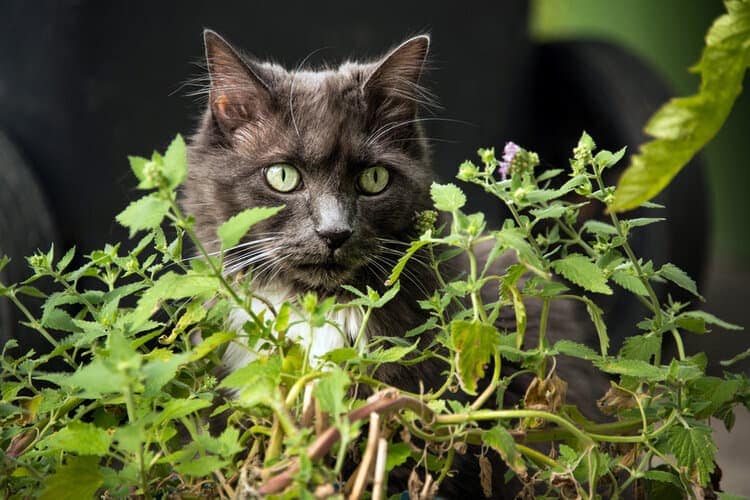It’s pure to need to provide your kitty one thing out of your backyard, however how are you aware what’s secure or probably harmful to your feline pals? Let’s have a look at a number of the herbs you’ll have entry to that you might let your cat round and a few that ought to be prevented.
An Necessary Be aware About Herbs
Even when an herb is taken into account “secure” to your cat, it might nonetheless trigger points like gastrointestinal upset in giant portions. Speak to your veterinarian about something you’re contemplating giving your cat as a result of cats with allergic reactions or particular well being points might be extra more likely to have negative effects.
It’s additionally essential to know that we don’t know all about how herbs can have an effect on our cats or their potential advantages. Additionally, simply because a product claims to have sure advantages doesn’t imply it is going to work to your cat.

The ten Herbs That Are Protected for Cats
1. Catnip (Nepeta cataria)
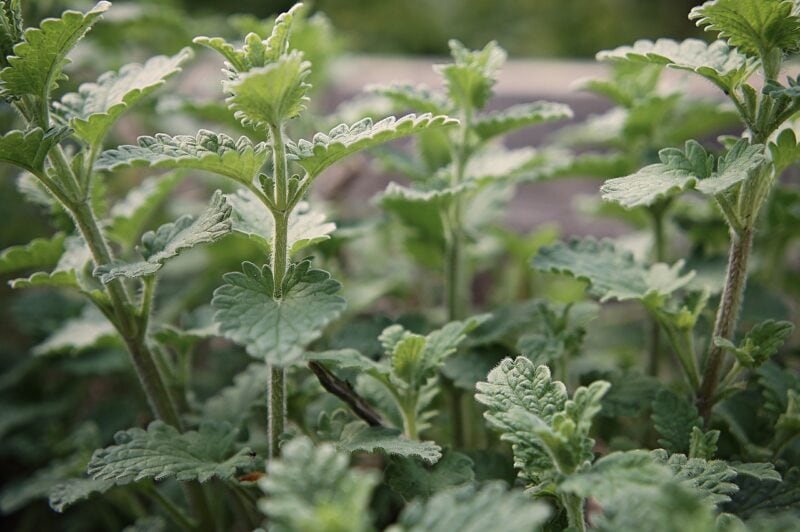
Many cats love catnip. You might need even given it to your cat and watched them roll round. It may be an efficient attractant, serving to you get your cat used to gadgets in the home like a scratching pad or litter field.
Catnip may be grown indoors or outdoor. Curiously, one examine1 discovered that cats rubbing in opposition to crops like catnip and silver bone protected them from mosquitoes.
2. Cat Grass
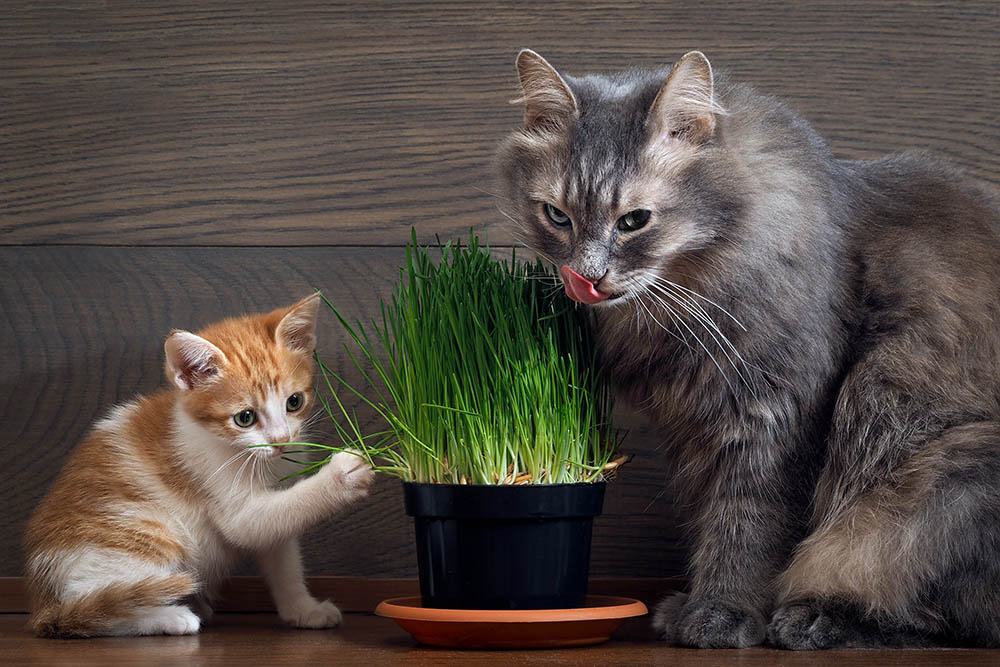
Cat grass is commonly a mix of secure grasses for kitties to munch on or roll round. It’s often a single inhabitants or a mix of barley, oats, wheat, or rye. These grasses are usually grown indoors, so that they don’t comprise pesticides or different chemical compounds that would make your cat sick.
Cat grass may be helpful to your cat for a number of causes. It could actually assist transfer materials by way of your cat’s intestine and comprises folic acid. Folic acid is particularly essential in biochemical reactions inside your cat’s physique, corresponding to DNA synthesis and even the manufacturing of purple blood cells.
3. Basil (Ocimum basilicum)

In line with the ASPCA, a superb useful resource for checking if crops are poisonous, basil is non-toxic for cats and canines. Which means you shouldn’t have something to fret about in case your cat knocks over your basil plant or chomps on just a few leaves. Your cat isn’t more likely to get main advantages from consuming basil, however they’ll get some micronutrients, together with folic acid.
4. Valerian Root (Valeriana officinalis)
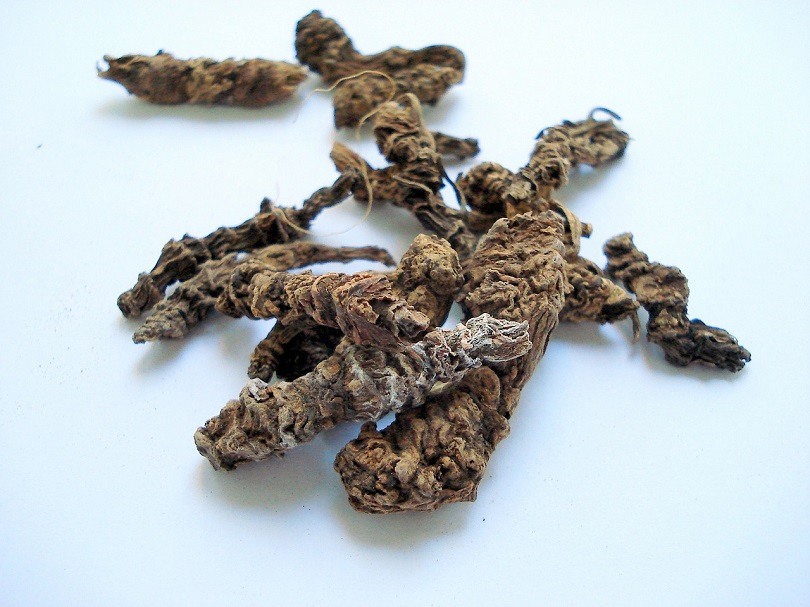
Valerian root is secure for cats to eat as a result of it has a large margin of security. Like in individuals, it has calming properties. You’ll find it in a variety of calming merchandise for cats.
5. Milk Thistle (Silybum marianum)
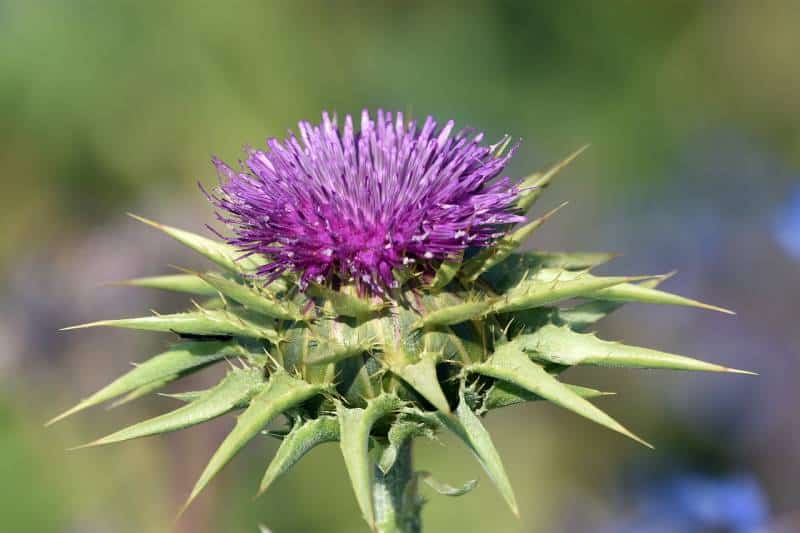
Milk thistle, or silymarin, is a generally really useful complement for cats and canines and is taken into account secure. One of many extra generally really useful dietary supplements in veterinary practices is a milk thistle mixture product, branded below a number of names corresponding to Denamarin or Denosyl. Your veterinarian could advocate this complement in case your cat has proof of liver modifications on blood work as a result of it could help liver well being and should enhance your cat’s elevated liver enzyme values.
6. Echinacea (Echinacea)
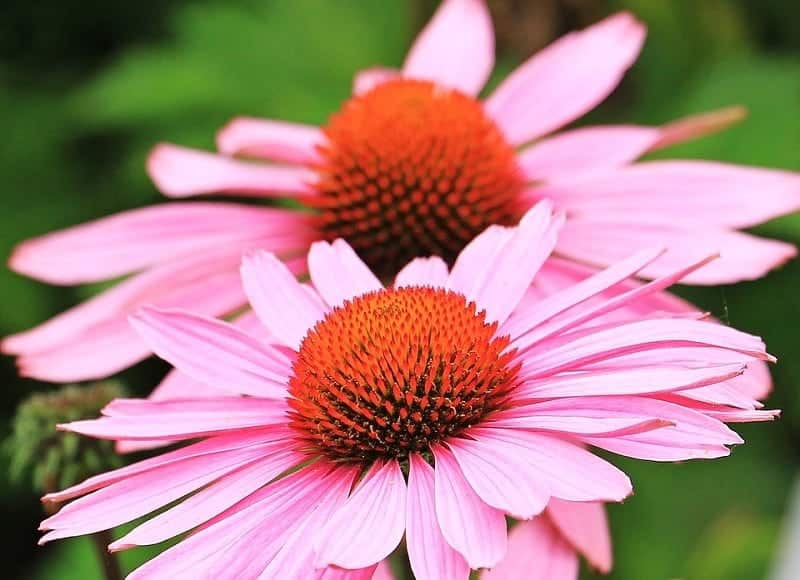
Whereas there are restricted research on utilizing echinacea in animals, it’s a secure and well-tolerated complement. It might profit your pet’s immune system and cut back signs related to higher respiratory infections, however that info is based totally on research in individuals.
7. Licorice Root (Glycyrrhiza glabra)
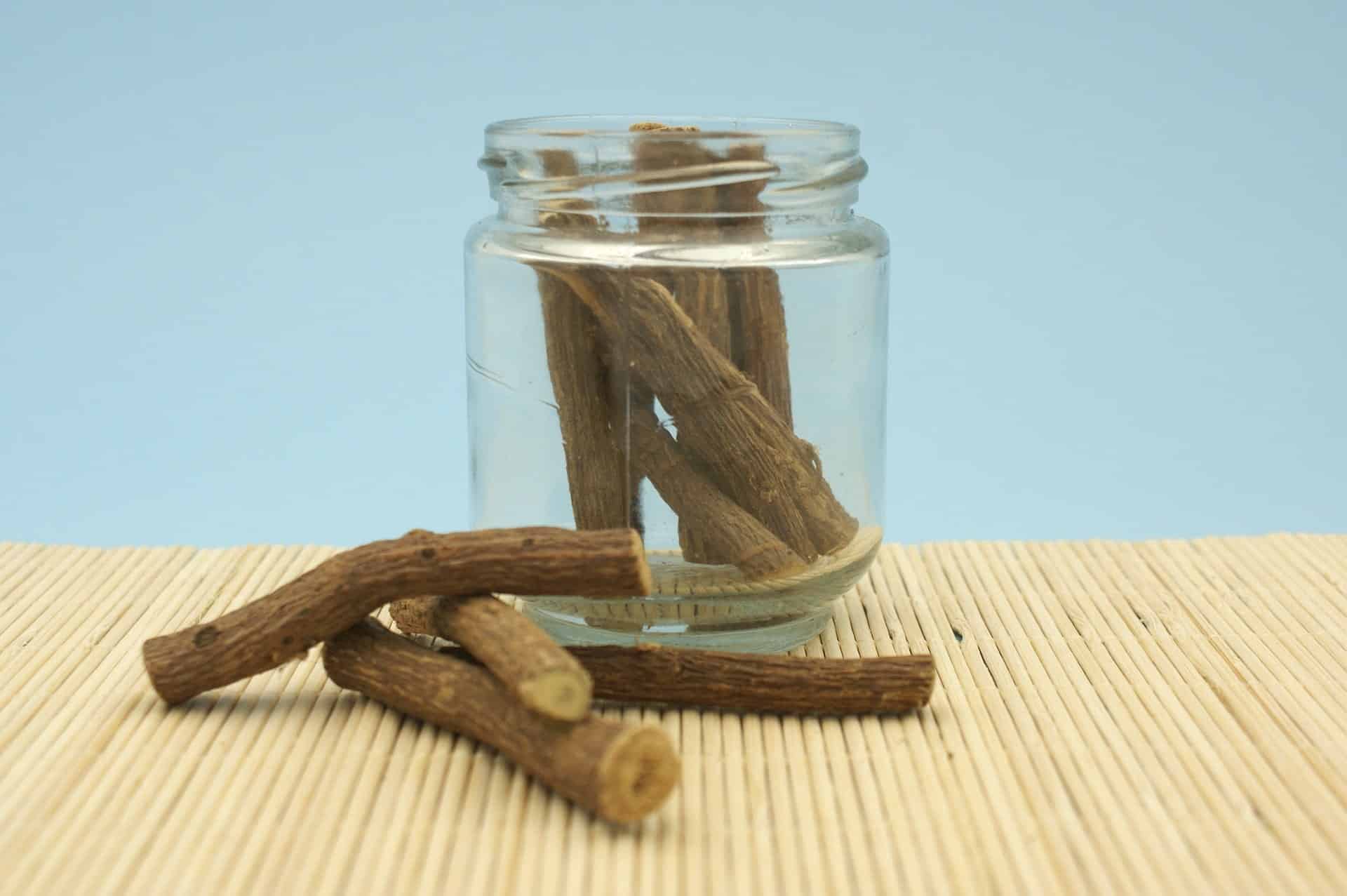
Licorice root seems secure for pets and has been touted for its quite a few well being advantages, together with digestive well being. A predominant ingredient in licorice root is glycyrrhizic acid. This compound could have important potential in a number of elements, because it seems to be:
- Anti-inflammatory
- Antioxidant
- Anticancer
8. Dandelion (Taraxacum)
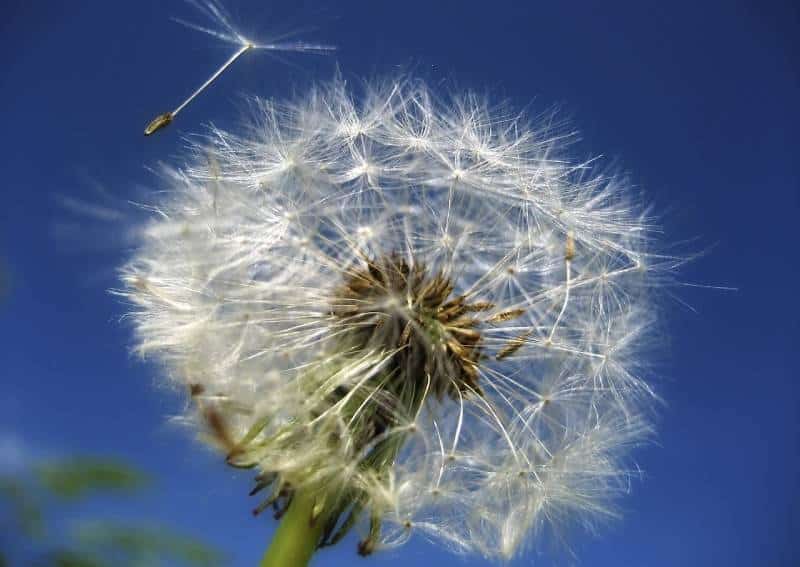
Dandelions have lengthy been a preferred plant cultivated for medicinal functions, though many individuals contemplate them a weed. There are a number of species of dandelions, however all of them seem secure for cats. Should you haven’t handled the yard with fertilizers, pesticides, or different hazardous chemical compounds, these crops are secure to your feline pals to eat exterior.
9. Calendula (Calendula)

Calendula has many names, the most typical of which is the common marigold. Marigolds are common as companion crops to assist preserve pests away from greens like tomatoes, so that you most likely have some in your backyard already. They’re not considered toxic for cats or canines, so be at liberty to develop some in your kitty’s herb backyard.
10. Marshmallow Root (Althaea officinalis)
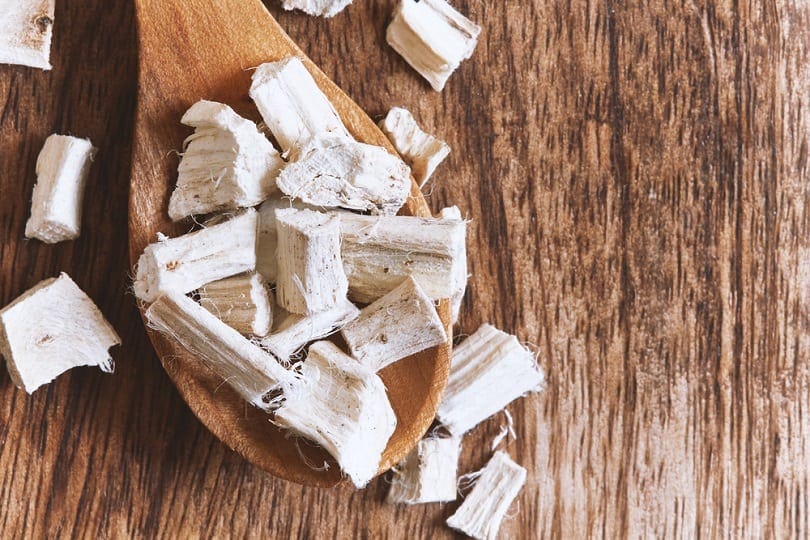
Marshmallow root is secure for cats and should present varied potential health benefits. It could actually coat irritated tissues and has antibacterial exercise. Along with serving to with irritation, it could additionally assist regulate your pet’s blood sugar.

Herbs and Crops to Keep away from
Some herbs may be extremely poisonous to your cat and have completely different negative effects. Keep away from planting these in your backyard in case your cat has entry to the surface, and preserve them out of your cat’s attain in the home to maintain your feline member of the family secure.
Mint (Mentha species)
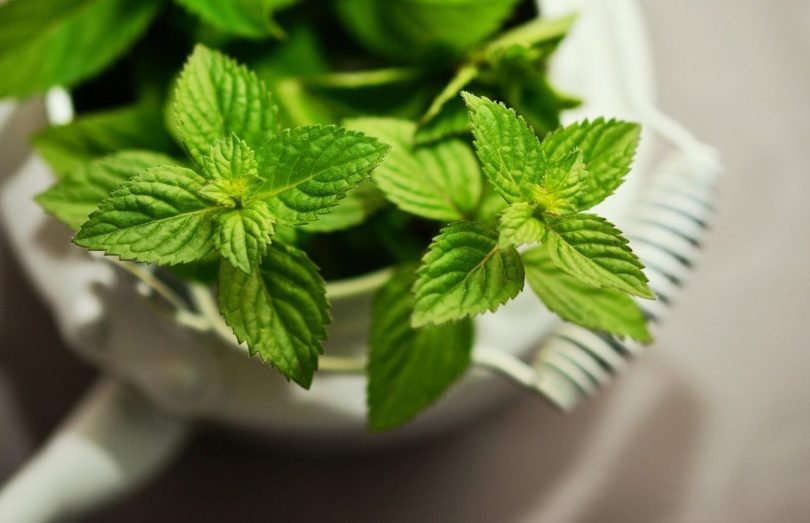
Mint comprises important oils that, whereas typically helpful for individuals, are unsafe for cats. In line with the ASPCA’s toxic plants list, mint may cause vomiting and diarrhea, significantly in case your cat eats lots of this herb.
Lavender (Lavandula angustifolia)
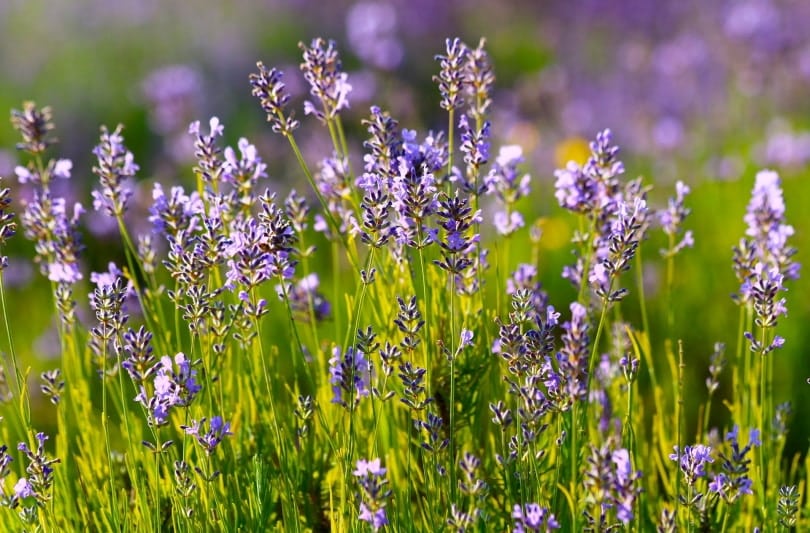
Lavender is classified as toxic to cats (in addition to canines and horses). Whereas pretty and aromatic, this plant may cause gastrointestinal points in cats, starting from inappetence to vomiting.
Allium Species (Allium)
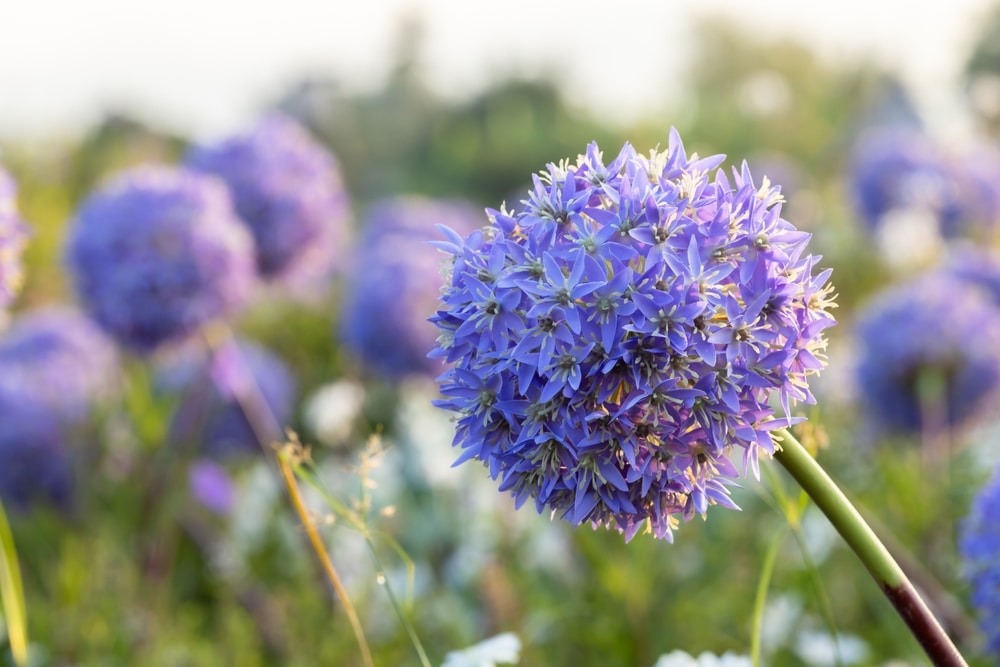
Garlic, onions, and chives belong to the identical plant household, as they’re Allium species. These crops may cause gentle to important gastrointestinal indicators, together with vomiting. What’s significantly scary is that in cats and canines, they’ll harm purple blood cells and result in hemolytic anemia, which might be life-threatening. If there’s the likelihood that your cat might’ve gotten into garlic, onions, or chives, contact your veterinarian instantly.

Conclusion
Quite a few plants are safe for cats to be around, and simply as many, if no more, have the potential to be poisonous. Earlier than you carry any crops into the home or chop up some herbs so as to add to your kitty’s dinner, guarantee they aren’t dangerous. Your veterinarian is a superb supply of knowledge to see if dietary supplements or natural treatments would possibly assist your cat, particularly as some can intrude with extra conventional prescribed drugs.
Featured Picture Credit score: Georgia Evans, Shutterstock

